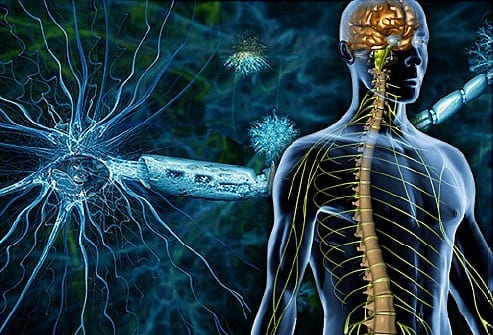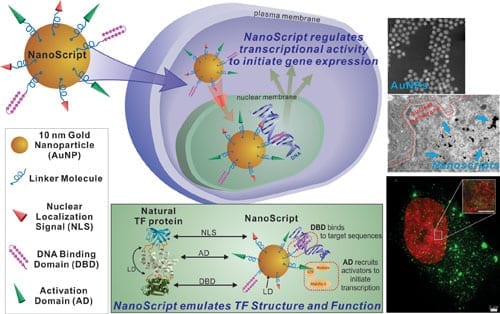
Stem cells are starting to prove their value as medical treatments
THIRTY years ago a young haematologist called Richard Burt was training at Johns Hopkins University, in Baltimore. He noticed that after leukaemia patients had received a treatment to wipe out their immune systems, they needed to be re-immunised against diseases such as measles and mumps. Although the patients in question had been vaccinated as children, the therapy for their blood cancer had erased this cellular memory. Dr Burt turned to his teacher, William Burns, and ask whether the same might be possible in autoimmune diseases. “I could see a light go on in his eyes. ‘You should try it in multiple sclerosis’ he said.” Thus began decades of painstaking work.
Multiple sclerosis (MS) happens when the body’s immune system learns to attack its own nerve fibres in the same way that it learns to attack invading pathogens. Nobody really understands what causes this misplaced learning. But Dr Burt’s idea did not depend on knowing that. He just wanted to wipe the memory out, in the way that the memory of a vaccination is wiped out by chemotherapy. By 2009 Dr Burt, now at Northwestern University, in Chicago, had proved that his treatment worked in patients with the most common form of the disease, relapsing remitting MS. The treatment involves using lower-dose chemotherapy to kill the white blood cells that are responsible for attacking nerve fibres, and then rebooting the immune system using stem cells collected from the patient before treatment began.
Stem cells are the source from which more specialised cells develop. Those found in bone marrow, known as hematopoietic stem cells, produce the many different cells found in blood, including the white cells implicated in MS. In Dr Burt’s therapy such stem cells are extracted from a patient, stored until after the chemotherapy, and then infused back into him. Ten days later, he can go home.
It is effective. Although there is a relapse rate of around 10% within five years, many who have been treated in randomised trials in Brazil, Britain and Sweden feel as though they have been cured. Proving they actually have been means waiting for the results of the trials, and watching how participants fare over many years. Already patients have been seen to improve for two years after treatment.
This work should give drug companies some pause for thought.
Read more: Curing multiple sclerosis
The Latest on: Curing multiple sclerosis
[google_news title=”” keyword=”Curing multiple sclerosis” num_posts=”10″ blurb_length=”0″ show_thumb=”left”]
via Google News
The Latest on: Curing multiple sclerosis
- The Long and Evolving Relationship Between Viruses and Multiple Sclerosison May 15, 2024 at 5:00 pm
Multiple sclerosis (MS) is a demyelinating disorder of unknown etiology, possibly caused by a virus or is virus-triggered. Several viruses, including herpesviruses, were suggested as etiologic ...
- The surprising benefits of weight loss jabs – including cutting dementia riskon May 15, 2024 at 4:00 am
As a major study shows it cuts heart attack risks experts say semaglutide could 'transform many chronic diseases of ageing' ...
- Meet the Utah professor who may be on cusp of curing Alzheimer'son May 13, 2024 at 8:52 am
‘We would treat not just Alzheimer’s, but also any kind of dementia: ALS, Parkinson’s, multiple sclerosis, spinal cord injury, any kind of condition where nerve cells are dying.’ She would need to ...
- Multiple Sclerosis (MS): Early Signs and Common Symptomson May 8, 2024 at 5:00 pm
Some people start with an episode of MS symptoms that doctors call clinically isolated syndrome (CIS). CIS could lead to MS, but it doesn’t always. MS happens when your immune system mistakenly ...
- AAN 2024: Exploring New Horizons in Relapsing-Remitting Multiple Sclerosis Treatmenton May 8, 2024 at 5:00 pm
Michael Sy, MD, PhD, shares reflections on highlights from AAN 2024, signaling promising avenues in RRMS treatment.
- How does multiple sclerosis affect the skin?on April 21, 2024 at 5:00 pm
Certain treatments for multiple sclerosis (MS) may cause hives or rashes in some people. MS is a chronic condition that affects the brain and spinal cord, which are part of the central nervous system.
- Q&A: Multiple Sclerosison March 21, 2024 at 1:08 am
and doctors haven't yet been able to develop a method of curing or preventing multiple sclerosis (MS). One of the main reasons why is that the cause of MS isn't fully understood. Many studies have ...
- What Is Multiple Sclerosis?on April 30, 2022 at 3:38 pm
Multiple sclerosis (MS) is a condition in which the immune system attacks myelin, or the covering wrapped around nerve cells. This disorder ultimately affects the brain and spinal cord ...
- Multiple Sclerosis Resource Centeron January 27, 2022 at 4:16 pm
Most people with multiple sclerosis (MS) have a type called relapsing-remitting MS (RRMS). It usually starts in your 20s or 30s. One study shows that people who began treatment when their first ...
- Multiple Sclerosison December 18, 2020 at 3:47 am
At Baylor Medicine's Maxine Mesinger Multiple Sclerosis Clinic specialized physicians provide diagnostics, treatment and support services to MS patients at a single, easy access location. Our ...
via Bing News










